Long White Gypsy uses affiliate links and is a member of the Amazon Services LLC Associates Program. If you make a purchase using one of these links, I may receive a small commission at no extra cost to you. See my Privacy Policy for more information.
It’s a question many in the hiking community never think of answering.
Is it weird to hike alone?
As the years march on, more and more beginner hikers use high crime rates, the threat of mugging or assault, crazy weather patterns, and hazards as reasons not to hike alone.
But while some people may be hesitant about taking solo hikes, there are plenty of reasons why doing so can be beneficial and enjoyable. In fact, many experienced hikers swear by the benefits of solo hikes – from improved concentration and mindfulness to increased self-confidence and awareness.
But is it actually weird to go on a hike by yourself?
We’re exploring the answer to this question in this post.
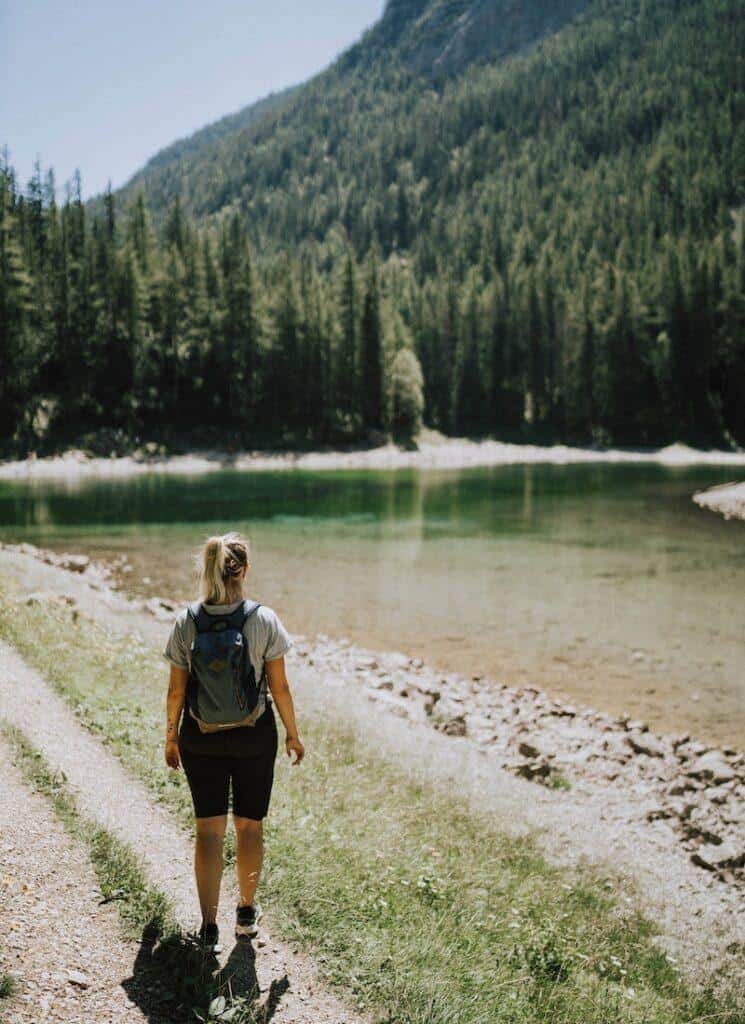
Is It Weird to Hike Alone? Why you might think hiking alone is weird.
Hiking alone is often seen as a strange activity. For many novice hikers, the idea of venturing out into nature without any company can seem like an unappealing or even dangerous prospect.
But why do we ask ourselves the question, “Is it weird to hike alone?”
While there are some legitimate safety concerns to consider when going on a hike by yourself, many of our negative beliefs about solo hikes come from the opinions of others and preconceived misconceptions.
Let’s take a look at why you might ask yourself “Is it weird to go hiking alone?”
Perception rather than reality
One of the main reasons why you might ask “Is it weird to hike alone?” is because you believe other people think it’s weird. I don’t need to tell you how influential public or popular opinion can be.
Allowing these factors to influence you can lead to feeling wary or unsure about going out hiking alone, when in reality it’s a perfectly safe and enjoyable thing to do!
Although you should be careful and make sure you’re well prepared, don’t let public opinion prevent you from having an amazing outdoor experience! You might even learn something along the way!
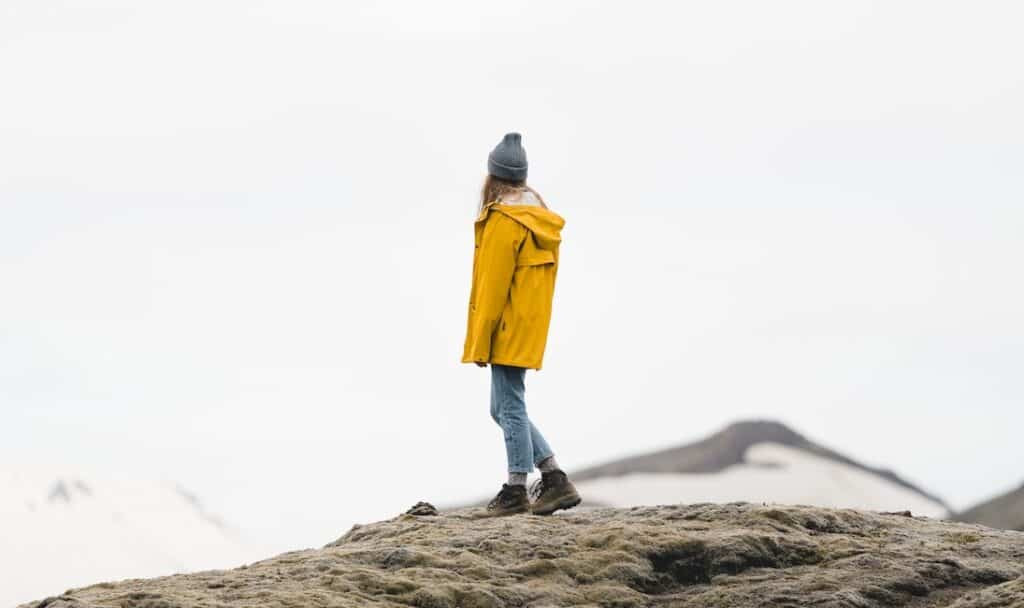
➤ RELATED POST: 7 Essential Tips for How to (Safely) Start Hiking Alone
You’ve never done it
Fear or apprehension of the unknown is such a powerful emotion. If you think it’s weird to hike alone, chances are you’ve never done it (or perhaps you’re even afraid of trying it for yourself).
I don’t blame you. It’s understandable why you’d be negative about the idea if you’ve never tried a solo hike before. There’s plenty to be apprehensive about or scared of! What if you get lost? What if the weather changes? What if you get injured? What if someone attacks you?
A substantial part of this fear-based mentality comes from feeling you might be unsafe or scared about venturing out on your own.
You might think hiking alone is scary or unsafe
It’s natural to be concerned about the safety aspects of hiking alone. But this doesn’t mean that hiking alone is a weird thing for someone to do.
It’s important to remember that these concerns (and fears) come from our natural instinct to survive and thrive. We avoid situations of perceived danger at all costs.
To help put these fears to rest, take the time to educate yourself on all the safety basics for hiking solo, such as making a plan before you hit the trail, notifying someone of your whereabouts and carrying all the necessary gear.
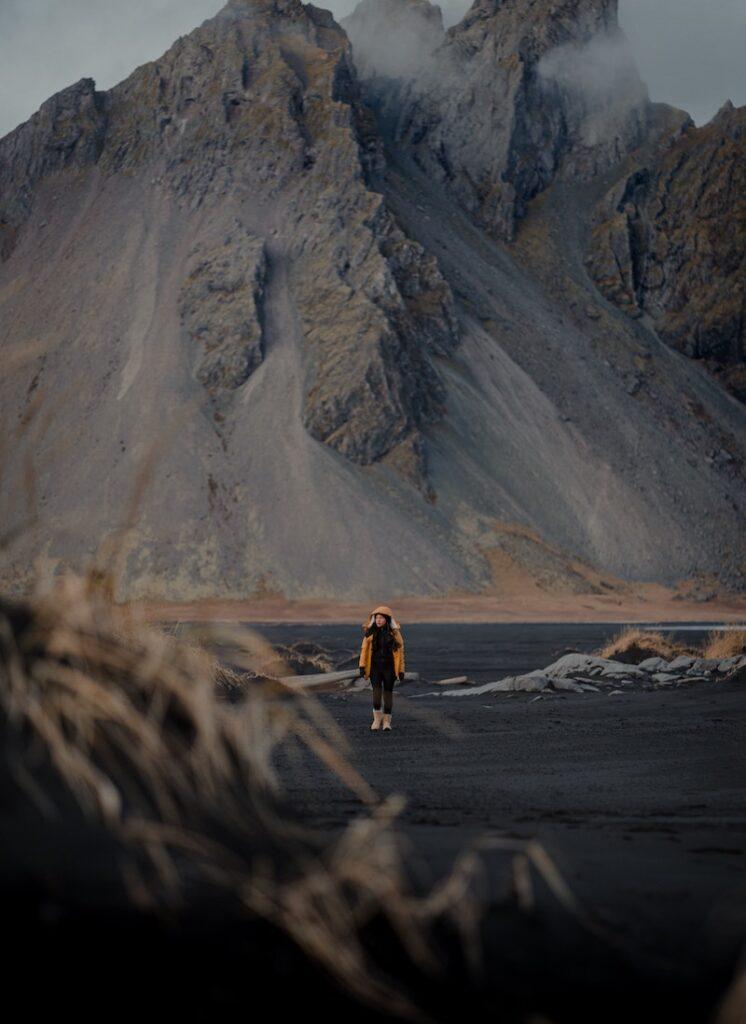
Other people might think you’re a loner
You may think that solo hiking is a weird activity because you’re afraid other people may assume you don’t enjoy the company of others (or you’re unsociable).
Seeking space from outside influences and negative people in your life might be exactly the reason why you feel the need to head into the outdoors in the first place.
For some people, it’s an opportunity to get away from the hustle and bustle of everyday life and to find peace and quiet.
For others, it’s a chance to challenge themselves or to practice mindfulness in nature. They may be seeking clarity about a particular relationship or problem they’ve been struggling with.
You’re the odd one out
Lastly, you might think solo hiking is weird because other hikers tend to walk in groups and you might be the black sheep.
Perhaps you opt to hike alone because you think you’ll be the least experienced person in a group of hikers. You worry that the other seasoned hikers will judge your lack of experience and make fun of you for not knowing enough about the outdoors.
In all my years of hiking, never once have I experienced (or witnessed) someone being made fun of because they lack hiking experience or skills.
It’s important to remember that nobody is expecting you to be an expert – after all, everyone was a beginner hiker once! You can use other people’s experience to learn more about being safe on the trail and to increase your skill level.
Solo Hiking Benefits (a.k.a. Why do people go hiking alone?)
Hiking alone is an incredible way to experience nature and challenge yourself. For many beginner hikers, the idea of heading out on their own can be intimidating. But if you take the time to prepare and educate yourself on safety basics for solo hikes, it can be one of the most rewarding experiences you’ll ever have!
Find out more about how to get started (safely) hiking alone in this post.
So what are some of the reasons why people go hiking alone?
It’s not always easy to find hiking buddies
One of the reasons why people choose to solo hike is because they don’t have a regular group to hike with. It can be hard to find people who are interested in the same type of hikes, so solo hiking gives them the freedom to choose which trails to explore and at what pace without having to wait around for someone else’s schedule and preferences.
Freedom to choose where to go and what track to do
When you’re hiking in a group one of the most important rules of the Land Safety Code is to make sure you’re choosing tracks and trails which suit everyone’s experience level.
But solo hiking allows you more freedom to choose which area to explore and what track to attempt. Since you’re not having to cater to anyone else’s unique experience level or skill set, you only have to worry about the tracks which are appropriate for you. You’ll probably have more options to choose from and may even be able to explore more difficult terrain for a greater challenge.
You can meet new people and make new friends
While many people choose to hike alone for the benefit of peace and quiet, don’t forget that it also can be a great way to meet new people and make some new friends. Even if you’re not looking for company, chances are that you’ll still come across other hikers on the trail. And who knows? You might even find a brand new hiking buddy to go on some more adventurous tracks and trails with!
Plenty of time to think and be with your thoughts
Being out in nature can bring a sense of clarity and calmness that is hard to find anywhere else, so if you need some time to think things through, solo hiking can be the perfect opportunity to do that. There’s no need to worry about entertaining anyone else or making sure you’re in sync with another person. Nature is the perfect healer, so you can take your time and ponder on whatever it is that has been bothering you – all while taking in the beautiful surroundings.
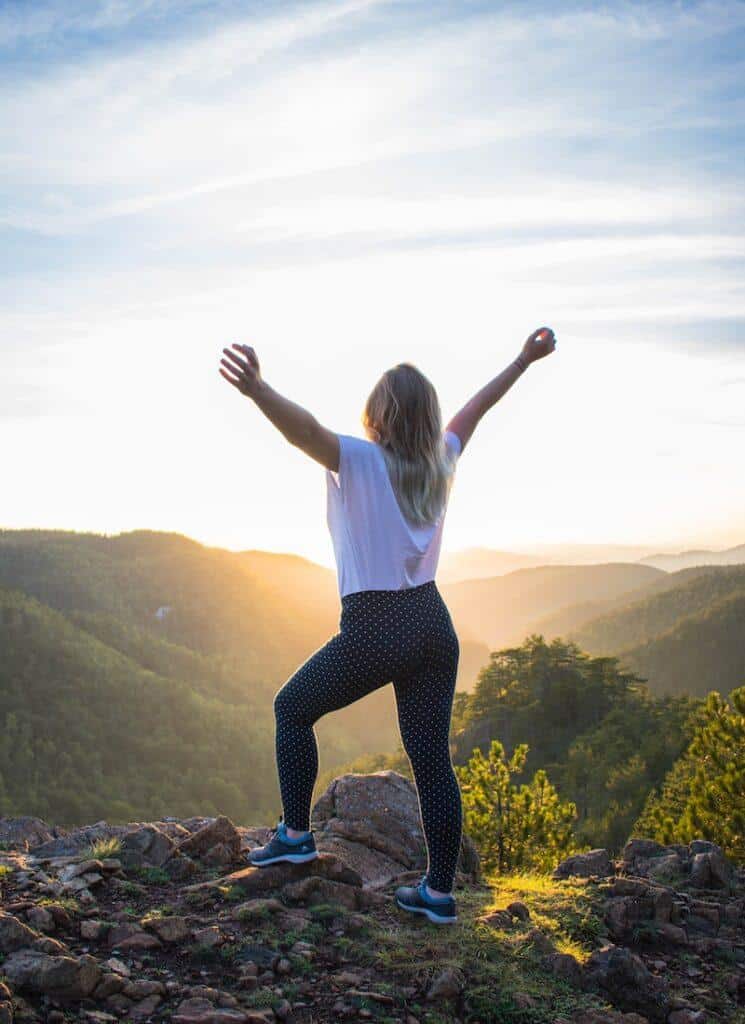
Increase your confidence, independence and resilience
Another great benefit of solo hiking is that it helps you build your self-confidence, independence and resilience. Taking on a challenging track or trail alone requires a unique skillset: strength, courage and determination, qualities which are essential in your everyday life.
When you complete a challenging hike by yourself, you’ll feel proud of what you have achieved and be motivated to take on more difficult tasks in the future. As you get more experienced, you’ll be able to attempt more difficult trails and your sense of achievement will increase.
You can go your own pace
The other great thing about solo hiking is that you can go at your own pace. There’s no need to worry about keeping up with anyone else or feeling like you have to rush through a track. You can take as long as you need, stop when needed and enjoy the scenery without having to feel like you’re lagging behind anyone else.
You don’t need to worry about the experience level of your companion(s)
Since it is just you out there on the trail, you only have yourself and your safety to consider.
When hiking in a group, the Land Safety Code tells us it’s important to consider the ability and experience level of all hikers in the group to ensure everyone has a safe trip. Whereas this is an important safety consideration, it can sometimes hold solo hikers with more experience back.
Solo Hiking Cons
Despite all the benefits of hiking solo, it’s important to remember the risks. When you’re on your own, there is no one else to help if something goes wrong. This means that you need to be extra careful and prepared for any situation.
There could also be safety issues involved such as wildlife or potential hazards in remote areas where you may not have access to help. Additionally, you may feel lonely or isolated if you don’t have anyone to share the experience with.
Here are some of the most important reasons why solo hiking can be a dangerous or unsafe activity.
Boy Scout Buddy System
The Buddy System is a tried and true method of ensuring safety in the outdoors. It’s often used by outdoor enthusiasts without even realising it, and aspects of it are referenced in part 5 of the New Zealand Land Safety Code.
The Buddy System works by having at least two people in the same group who are responsible for each other’s safety and well-being. The idea is that if one person gets lost, injured or falls ill, the other can help out and, if necessary, raise the alarm to get assistance.
In outdoor environments, the Buddy System actually recommends people travel in groups of four. This ensures maximum safety. If one person gets injured, there’s someone to stay with that person while the other two go to get help.
Safety
Solo hiking carries many safety risks. It’s important to be aware of how your safety may be compromised by hiking alone so you can plan accordingly and pack the appropriate gear.
Solo hiking can be unsafe because of the changeable nature of weather conditions and terrain. When weather or conditions turn bad, it can happen quickly and you may not have enough time to get back to safety. This can lead to an unexpected night in the wilderness.
Solo hikers are more vulnerable to injury and bad decision-making as they’re forced to rely on their own judgment rather than talk a problem through with a partner. When you’re exhausted from a long day of hiking, this problem is exacerbated. And if you take a fall or a wrong turn when in the wilderness alone, it will take much longer before the alarm is raised (especially if you aren’t carrying an emergency communication device with you).
Loneliness
Solo hiking can be a lonely experience. Some hikers specifically seek out tracks and trails where they’re unlikely to come across another hiker, seeking solace in the wilderness. But others might find that they actually feel more isolated (and less safe).
This is especially the case if you choose a less trafficked trail over a busier one. You might think you’re craving some alone-time, but when you actually get out there it could be a very different story.
I’m speaking from experience. Even on short day hiking trails I’ve often felt uneasy and isolated if I don’t come across another hiker for some distance (or at all). Our natural survival instinct is strongly connected to community. Don’t underestimate how much the company of others can immediately set you at ease and make you feel safe, especially in an unfamiliar environment.
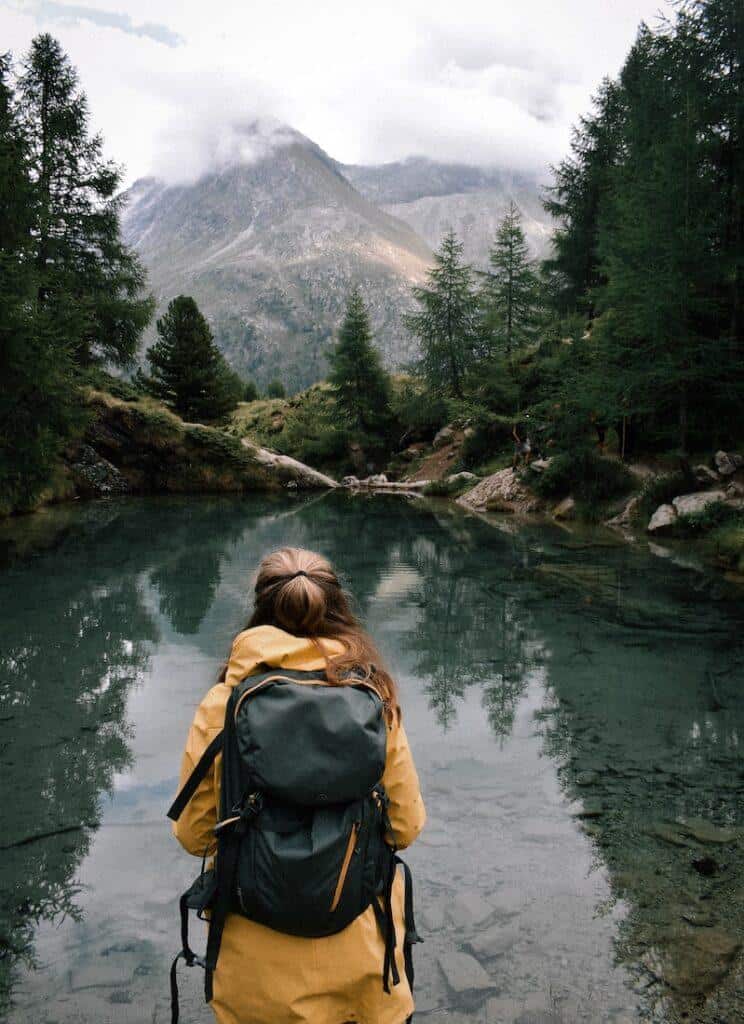
Getting Lost
Aside from the weather, one of the biggest killers in the wilderness is when a person gets lost. It’s more common for a person hiking alone to get lost than an entire group. This is because a solo hiker has to rely entirely on their own decision-making and navigation ability. Solo hikers don’t have another person to help them find their way or keep an eye on the map or navigation as they’re moving.
Even experienced hikers can run into trouble if they make a wrong turn or misjudge their route. This is especially true if they’re already exhausted and tired from a long day of tramping. Two heads are always better than one, but there are some things you can do to ensure you minimise the risk of getting lost if you’re alone. Read more about this in my tips for (safely) hiking alone.
Getting Hurt, Injured or Sick
When venturing into the outdoors you’re responsible for your own health and safety. But the changeable nature of the outdoors means you’ll always be facing some level of risk.
It’s easier than you might think (especially when you’re tired) to take an unnecessary tumble, cut or scrape yourself badly, roll your ankle or forget to filter or treat your drinking water. If you become injured or ill you might need third-party help and/or be unable to return home by yourself.
Having a second person with you can alleviate many of these problems. But when you’re alone you have to be on your guard all the time, which is why many solo hikers choose easier trails when they’re alone.
Can’t challenge yourself or push yourself to your limits
One final con of hiking solo is the fact that generally, you just have to be more careful when you’re attempting a trail on your own because you’ll be at greater risk. The above factors outline just some of the bigger risks, but of course there are many more things that can happen on a hiking trip.
Because of this, it’s often advised that hikers planning to take solo trips don’t take on more than they can handle. Solo trips are a great way to increase your resilience or self-confidence. But it’s far safer to join a group of more experienced hikers on a more technical trail if you’re looking to develop your outdoor skills.
By joining an experienced group of hikers you can benefit from the collective wisdom of the experienced group members and get a better understanding of how to handle different scenarios. You can push your limits whilst still in a relatively safe environment.
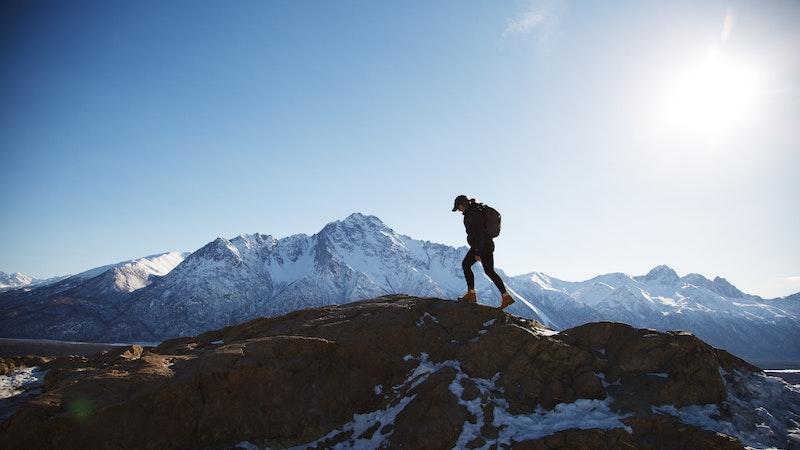
Conclusion – it’s not weird to go hiking alone.
So, is it weird to hike alone? Absolutely not!
Hiking solo is a great way to build confidence, try something new, and get out of your comfort zone. Plus, you get the benefit of enjoying the peace and quiet of nature without worrying about catering for another person or having to maintain a conversation whilst you’re out there.
But please remember that hiking solo comes with its own risks and dangers. So before you consider venturing out on your first solo trip, make sure you plan properly and take the necessary safety precautions by following my tips to start (safely) hiking alone.
